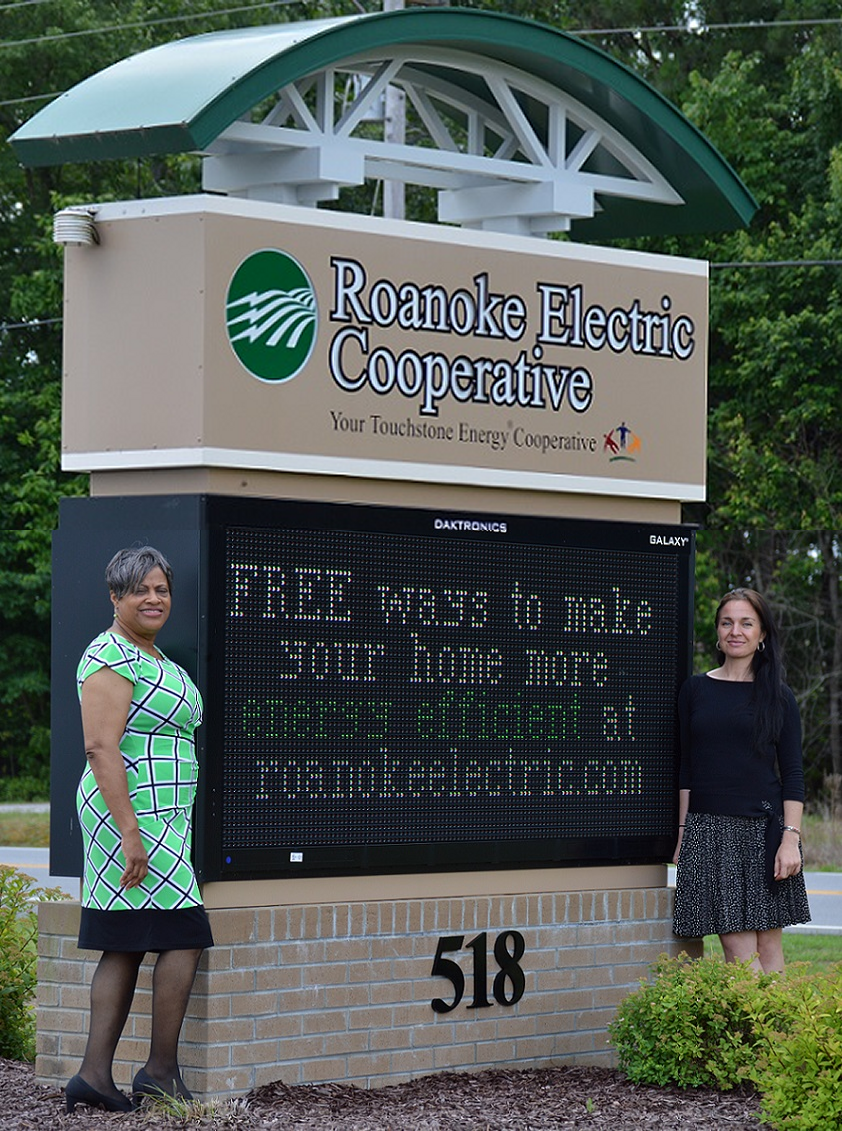EDF Climate Corps fellow | June 17, 2014
 By: Maria Fernandez
By: Maria Fernandez
Walking along a golden field close to my new home in Northampton County, rural North Carolina, I suddenly feel suspended in time. I realize that this is the first moment in the last few months that I have finally been able to slow down. Only a month ago, I was offered a position as an Environmental Defense Fund Climate Corps fellow with Roanoke Electric Cooperative (REC). Previously living in Massachusetts, I knew nothing about the more than 900 rural electric co-ops in the US which are private, not-for-profit businesses governed by their consumer-members; they distribute electricity to more than 40 million consumers through low-voltage residential lines that cover more than 75 percent of the nation’s land mass. I knew that I had to accept the challenge of becoming a member of the EDF Climate Corps network, and to prepare myself to learn and to serve at REC.
The Training
That learning started immediately! Only a few days after I saw my Isenberg-UMass MBA class graduate (with one year remaining to wrap up my MPPA), I flew to Chicago to start EDF Climate Corps training. Week one began with networking and total immersion on all topics related to energy management, sustainability strategy and energy efficiency. It was exhilarating to meet over 100 brilliant and engaging fellows as well as the committed and supportive EDF staff. In just five days, my professional network exploded, my mind expanded and I surrendered to the fact that EDF Climate Corps is becoming a pivotal point in both my career and life.
Soon, it was time to head to North Carolina. After a week of frantically hiring babysitters and leaving the freezer full of dinners to increase my family’s chances of survival, I packed one piece of luggage and jumped on a flight to Raleigh-Durham. I touched down that evening and moved into my new living quarters, before immediately collapsing into bed and wishing for a “kind” first day at REC.
The First Day
I will forever be grateful to my host supervisor at REC, Sondra Dickens, for her warm welcome. Sondra is the executive director of The Roanoke Center, which coordinates energy efficiency projects and ensures access to capital for the co-op members. We spent the first day getting to know each other, meeting many of the 50 employees at REC and touring the facilities. For my project, I am focusing on key commercial accounts and identifying energy efficient projects. This includes proposing strategies to reduce peak demand and researching REC’s opportunities to take advantage of Demand Response payments.
That afternoon, I accompanied my supervisor on her rounds to prequalify residential customers for financial support for energy efficiency retrofits, and I noticed opportunities to improve efficiency immediately. We also visited a trailer park where REC ran a weatherization project last year. It turns out that in substandard housing, one electricity bill can be greater than a mortgage payment - over $1000 per month in some cases! On my first day, it was already evident that energy efficiency can improve not only a household’s comfort and cash flow, but also help the co-op to run a sustainable business. At a given time, about 25 percent of the 15,000 co-op members’ payments are late and 3 percent of the accounts are consistently disconnected for nonpayment. REC uses technology and education to proactively help members to decrease their electricity bills, but it is a work in progress that requires persistence and the injection of funds.
The Potential Impact
In a region where a few dollars returned to members can feel like Christmas, there is great urgency to find ways to reduce wasted kilowatt hours and to prepare an accurate and compelling business case to get customers to say YES to energy efficiency. Money saved can be reinvested in more retrofits, in improving the local economy, in education…the list goes on, creating a virtuous cycle that can improve the quality of living and reduce carbon emissions. I ponder the multiplicative positive effect that my proposed saving strategies could have if they were adopted by other cooperatives across the country.
My first week is done. I feel grateful to my family for being brave and agreeing to take care of themselves so that I can focus on my mission here. I contemplate how different my summer and future would be if I had been deployed in Chicago, Las Vegas or a global corporation. Rural North Carolina might well be the polar opposite, but energy is still at the core of people’s survival needs. I reflect on the transformative effect that EDF Climate Corps has on its fellows’ lives, but also on the lives of the professionals and communities we share this journey with: a journey towards a more rational use of resources, and the adoption of smart energy management.
Learn more about Maria here >>
About EDF Climate Corps
EDF Climate Corps (edfclimatecorps.org) taps the talents of tomorrow’s leaders to save energy, money and the environment by placing specially trained EDF fellows in companies, cities and universities as dedicated energy problem solvers. Working with hundreds of leading organizations, EDF Climate Corps has uncovered nearly $1.3 billion in energy savings. For more information, visit edfclimatecorps.org. Read our blog at edfclimatecorps.org/blog. Follow us on Twitter at twitter.com/edfbiz and on Facebook at facebook.com/EDFClimateCorps.